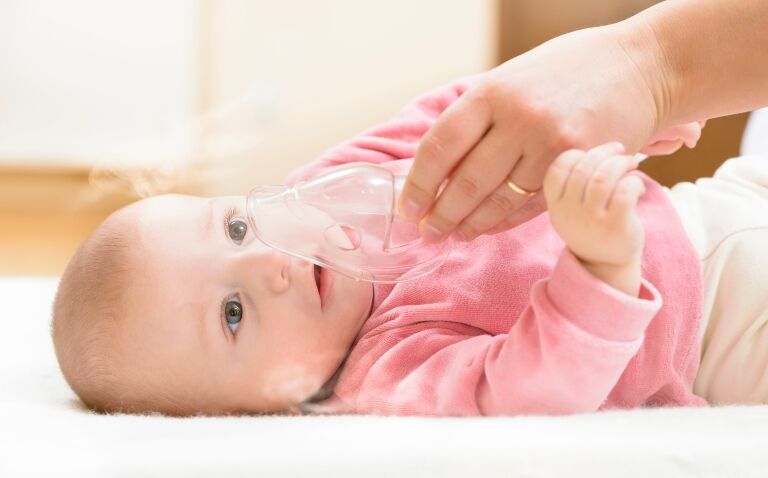A new trial aims to determine the most effective breathing support for babies hospitalised with bronchiolitis in order to aid quicker recovery, limit discomfort and reduce hospital stays.
Led by researchers at Imperial College London and clinicians at Imperial College Healthcare NHS Trust, in collaboration with experts across the UK, the BACHbtrial will recruit 1,508 infants (924 with moderate and 584 with severe bronchiolitis) over a 30-month period from children’s emergency departments and wards in 50 hospitals.
It is hoped that the trial will help to inform national and international guidelines on the care of infants with bronchiolitis.
Dr Padmanabhan Ramnarayan, chief investigator of the trial from the Department of Surgery and Cancer at Imperial College London, and honorary consultant in paediatric intensive care at Imperial College Healthcare NHS Trust, said: ‘There are a range of options to treat breathing difficulties in babies with bronchiolitis but there is a lack of evidence about which patients would benefit most from each type of treatment. This has led to varying approaches to treating the condition, based on little evidence.
‘Our trial aims to answer this question by assessing current treatments and seeing which one provides the most effective breathing support in moderate and severe cases of bronchiolitis.’
The researchers will conduct two simultaneous clinical trials to determine the effectiveness of high-flow nasal cannula (HFNC) therapy in moderate and severe bronchiolitis.
Infants with moderate bronchiolitis will be randomly allocated to start either HFNC or humidified standard oxygen (HSO) and those with severe bronchiolitis with either HFNC or continuous positive airwave pressure (CPAP).
The clinical teams will be responsible for all other treatment decisions, including switching patients to an alternative treatment if the original is not found to be effective.
The researchers will then compare the treatments by measuring how quickly infants are discharged from hospitals. Other outcomes to be considered are patient comfort, parent/carer satisfaction, how often infants need admission to intensive care and their health status one and three months later. The comparative costs of each treatment will also be assessed.
The study design was supported by two parent representatives from the National Institute of Clinical Excellence bronchiolitis guideline committee and an independent parent advisory group with six parents whose children were treated for bronchiolitis will also help to advise the research group throughout the trial.
Each year, nearly 30,000 infants under the age of one are admitted to hospitals in England with bronchiolitis and around half of these need oxygen treatment through nasal cannula.










